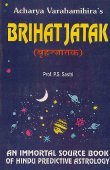Affliction: 1 definition
Introduction:
Affliction means something in Hinduism, Sanskrit. If you want to know the exact meaning, history, etymology or English translation of this term then check out the descriptions on this page. Add your comment or reference to a book if you want to contribute to this summary article.
Images (photo gallery)
In Hinduism
Yoga (school of philosophy)
Source: ORA: Amanaska (king of all yogas): A Critical Edition and Annotated Translation by Jason BirchAfflictions are denoted by the Sanskrit term Kleśa, according to the Bhāṣya (commentary) on the Pātañjalayogaśāstra (i.e., The Yoga Sūtras of Patañjali).—Accordingly: “Yoga is not perfected by one who does not practise Tapas. Impurity, which is of various kinds because of beginningless Karma, affliction (kleśa) and habitual tendencies and because of which the network of sense objects stands opposed [to Yoga], is not weakened without Tapas. Thus, the mention of Tapas [in the root text]”.

Yoga is originally considered a branch of Hindu philosophy (astika), but both ancient and modern Yoga combine the physical, mental and spiritual. Yoga teaches various physical techniques also known as āsanas (postures), used for various purposes (eg., meditation, contemplation, relaxation).
See also (Relevant definitions)
Full-text (+775): Klesha, Kheda, Shoka, Samtapa, Asukha, Sopadrava, Paritapa, Tapa, Shokarti, Mahajvara, Jvara, Bahirupadrava, Abhitapa, Idapida, Paritapana, Alaibalai, Malinya, Atanka, Praisha, Moha.
Relevant text
Search found 193 books and stories containing Affliction; (plurals include: Afflictions). You can also click to the full overview containing English textual excerpts. Below are direct links for the most relevant articles:
Yoga-sutras (with Vyasa and Vachaspati Mishra) (by Rama Prasada)
Sūtra 2.4 < [Book 2 - Practice (Sādhana)]
Sūtra 4.30 < [Book 4 - Absolute Independence (Kaivalya)]
Sūtra 2.2 < [Book 2 - Practice (Sādhana)]
Tattvartha Sutra (with commentary) (by Vijay K. Jain)
Verse 9.13 - The afflictions caused by the knowledge-covering karmas < [Chapter 9 - Stoppage and Shedding of Karmas]
Verse 9.15 - The afflictions caused by the conduct-deluding karmas < [Chapter 9 - Stoppage and Shedding of Karmas]
Verse 9.14 - The afflictions caused by the faith-deluding and obstructive karmas < [Chapter 9 - Stoppage and Shedding of Karmas]
The Great Chariot (by Longchenpa)
Part 12 - Instantaneous Impermanence < [B. The extended explanation]
Part 11 - The impermanence of the three levels < [B. The extended explanation]
Part 2 - The Teaching of the Benefits < [D. The final summary]
The Tattvasangraha [with commentary] (by Ganganatha Jha)
Verse 1954-1956 < [Chapter 22 - Lokāyata—Materialism]
Verse 3598 < [Chapter 26 - Examination of the ‘Person of Super-normal Vision’]
Verse 3488-3494 < [Chapter 26 - Examination of the ‘Person of Super-normal Vision’]
Yoga-sutras (with Bhoja’s Rajamartanda) (by Rajendralala Mitra)
Sūtra 2.3 < [Second Chapter (Sadhana Pada)]
Sūtra 2.12 < [Second Chapter (Sadhana Pada)]
Sūtra 4.29 < [Fourth Chapter (Samadhi Pada)]
Significance of the Moon in Ancient Civilizations (by Radhakrishnan. P)
14. Remedis For Planetary Afflictions < [Chapter 15 - Conclusion]
5. Chandrayana Fasting < [Chapter 15 - Conclusion]
5. Chandramasa and Seasons < [Chapter 5 - Adoration of the Sun and Moon]
Related products



